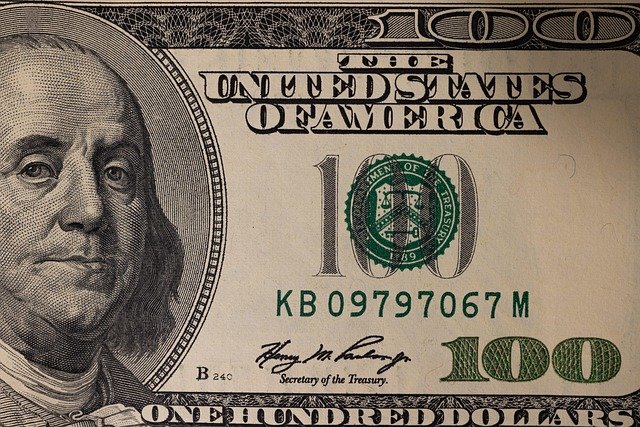# Essential Tips for Saving on Everyday Necessities and Maximizing Your Monthly Budget
In today’s fast-paced world, managing finances can be a daunting task. With rising costs of living, it’s more important than ever to find ways to save on everyday necessities. Whether it’s groceries, household items, or daily needs, there are numerous strategies to help you maximize your monthly budget. Here are essential tips for saving money through smart shopping habits, including the effective use of coupons and bulk-buying strategies.
## Understanding Your Monthly Budget
Before diving into specific saving techniques, it’s crucial to have a clear understanding of your monthly budget. Start by tracking your income and expenses for a month. This will give you a comprehensive view of where your money goes and help you identify areas where savings can be made.
Once you have this information, categorize your expenses into fixed costs (like rent and utilities) and variable costs (like groceries and entertainment). This will allow you to focus on the areas where you have more flexibility to cut back and save.
## Grocery Shopping: A Major Expense
### 1. Plan Your Meals
Meal planning is one of the most effective ways to save money on groceries. By planning your meals for the week, you can create a shopping list that focuses on the ingredients you need, reducing impulse buys and food waste. Aim to include versatile ingredients that can be used in multiple dishes.
### 2. Use Coupons Wisely
Coupons are a powerful tool for saving money on groceries. Here are some tips on how to maximize their use:
– **Collect Coupons:** Sign up for store loyalty programs, follow brands on social media, and check coupon websites regularly. You can also find digital coupons in store apps or websites like Ibotta and Rakuten.
– **Match Coupons with Sales:** Look for sales and promotions at your local grocery store. Pairing coupons with sales can lead to significant savings. Some stores even allow you to stack manufacturer coupons with store coupons.
– **Organize Your Coupons:** Keep your coupons organized by category or expiration date. This will make it easier to find them when you’re at the store and help you avoid missing out on savings.
### 3. Buy Generic Brands
Many grocery stores offer their own brand of products, which are often significantly cheaper than name-brand items. These generic products are usually of comparable quality, allowing you to save money without sacrificing taste or quality.
### 4. Buy in Bulk
Buying in bulk can lead to substantial savings, especially for non-perishable items. Here are some tips to make bulk buying work for you:
– **Know What to Buy in Bulk:** Items like grains, pasta, canned goods, and cleaning supplies are often cheaper when purchased in bulk. However, avoid buying perishable items in bulk unless you are sure you can consume them before they spoil.
– **Share Bulk Purchases:** If you have friends or family who are also looking to save, consider splitting bulk purchases. This way, you can enjoy the cost savings without the risk of waste.
– **Use a Warehouse Club:** Membership-based warehouse clubs like Costco or Sam’s Club can offer significant savings on bulk items. Just ensure that the membership fee is worth the savings you’ll achieve.
## Household Items: Cutting Costs
### 5. Shop Smart for Household Supplies
Household items can add up quickly, but there are several ways to save:
– **Use Coupons and Cashback Apps:** Just like with groceries, coupons can help you save on household supplies. Additionally, cashback apps can provide rebates on your purchases.
– **Buy Multi-Packs:** Purchasing multi-packs of items like toilet paper, paper towels, and cleaning supplies can often reduce the per-unit cost.
– **Consider DIY Solutions:** For items like cleaning supplies, consider making your own using simple ingredients like vinegar, baking soda, and essential oils. Not only can this save you money, but it can also be healthier for your home.
### 6. Timing is Everything
Many stores have sales cycles, and knowing when to shop can save you money. For example, many retailers have sales on household items at the end of the month or during holiday seasons. Keep an eye on sales flyers and plan your shopping trips accordingly.
## Daily Needs: Small Changes, Big Savings
### 7. Evaluate Subscriptions
In our subscription-driven world, it’s easy to lose track of monthly expenses. Review all your subscriptions (streaming services, magazines, etc.) and cancel any that you don’t use regularly. This can free up a surprising amount of cash each month.
### 8. Use Public Transportation or Carpool
If you frequently drive or take rideshares, consider using public transportation or carpooling. This can significantly reduce your fuel costs and wear and tear on your vehicle. Plus, it’s a great way to reduce your carbon footprint!
### 9. Cut Down on Eating Out
Dining out can quickly drain your budget. Instead, try to cook more meals at home. If you do eat out, look for deals, such as happy hour specials or discounts on certain days. You can also save by preparing meals in advance and bringing lunch to work or school.
## Conclusion: Small Steps Lead to Big Savings
Maximizing your monthly budget doesn’t have to be a daunting task. By implementing these essential tips for saving on groceries, household items, and daily needs, you can make a significant impact on your finances. Start by planning your meals, using coupons, buying in bulk, and being mindful of your subscriptions and eating habits. Remember, every little bit counts. With dedication and smart shopping strategies, you can achieve your financial goals and enjoy a more secure and stress-free future. Happy saving!










